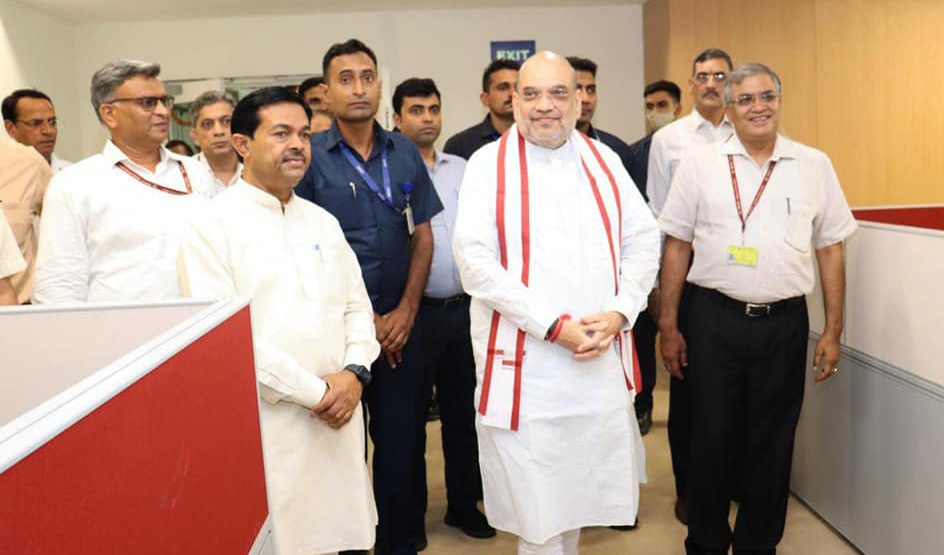In a written reply to a question in Lok Sabha on Tuesday, Union Minister of Cooperation, Amit Shah said the government is formulating a new national level policy for cooperatives and a two-day National Conference took place in April for the same.
The discussion took place with Cooperation Secretaries, RCSs from all the States & UTs, wherein issues such as legal framework, identification of regulatory, policy & operational barriers; ease of doing business; reforms for strengthening governance; promoting new and social cooperatives; revitalizing defunct ones; making cooperatives vibrant economic entities; cooperation among cooperatives and increasing membership of cooperatives were taken up, said the Minister.
Further, suggestions on the draft Policy were sought from the stakeholders including the general public through the website of the Ministry. Based on the comments received from Central Ministries, Departments, States/UTs, Federations, Institutions and general public, and further consultations with stakeholders, the new Policy will be formulated.
Some of the several steps taken by the Government to strengthen India’s cooperative architecture include the following:
As per notification dated 25th October, 2021, the Government has provided relief to cooperative sugar mills by clarifying that they shall not be subjected to additional income tax for paying higher sugarcane prices to farmers up to the Fair and Remunerative Price (FRP) or State Advised Price (SAP), as the case may be.
As per the Budget announcement 2022, the Government reduced the surcharge for cooperative societies from 12% to 7% for those having a total income of more than Rs. 1 crore and up to Rs. 10 crore. Further, to provide a level playing field between co- operative societies and companies, Minimum Alternate Tax (MAT) rate for cooperative societies was reduced from 18.5% to 15%.
As per notification dated 3rd February 2022 by Credit Guarantee Fund Trust for Micro and Small Enterprises (CGTMSE), non-scheduled Urban Co-operative Banks, State Co-operative Banks and District Central Co-operative Banks as Member Lending Institutions of the scheme with specified eligibility criteria. This will help in providing adequate, affordable and timely credit to the co-operative institutions to give a boost to the co-operative based economic development model.
As per the approval of the Union Cabinet on 1st June 2022, the mandate of Government e-Marketplace – Special Purpose Vehicle (GeM – SPV) has been expanded to allow cooperative societies to register as buyers on the GeM platform.
As per the approval of the Government on 29th June 2022, a centrally sponsored project for digitalization of 63,000 functional Primary Agriculture Credit Societies (PACS), with a budgetary outlay of Rs 2,516 crore, has been sanctioned to revitalize the cooperative sector. The implementation of this project has already begun.
In order to diversify the business activities of PACS and make them vibrant multipurpose economic entities, draft model Bye-Laws are being prepared in consultation with State Governments, National Cooperative Federations and other stakeholders.
A new scheme titled “Cooperation to Prosperity” is being formulated in consultation with all the stakeholders for all-round development of cooperatives at all levels.
In order to facilitate the Government to make appropriate policy interventions, a National Co-operative Database is being created in consultation with State/UT Governments, National Co-operative Federations and other stakeholders.
In order to modernize and professionalize the education and training in the cooperative sector, steps are being taken to reorient the training and educational Cooperative Institutions in consultation with all the stakeholders.






















































Developing new ones and strengthening existing cooperative ventures and institutions are vital to the growth of our economy and can contribute substantially to overcoming the Covid impacts and ensuring sustainability in a span of three years. We have the experiences of several such institutions already operating in the country. At the national level, there are world-class co-op institutions in manufacturing, and agriculture like IFFCO, KRIBHCO, AMUL, SEWA etc. The services sector is yet to capitalize the potential of the co-operatives. The newly set up ministry in the GoI shall endeavour to promote new manufacturing and social cooperatives, strengthen governance, revitalize underperforming ones to make them vibrant economic entities, install a prudent legal framework and enable policy and regulatory measures.